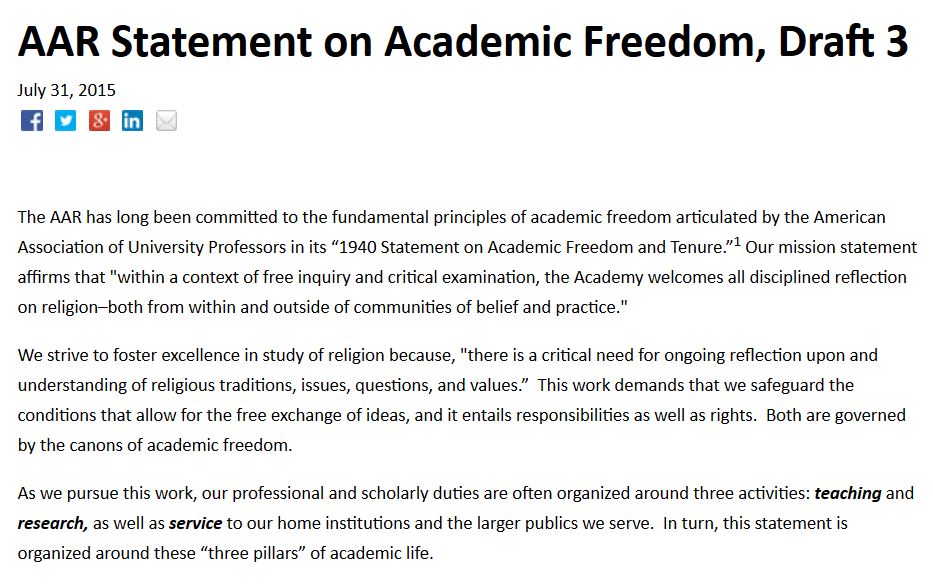
Recently, the Board of Directors of the American Academy of Religion released a draft update to its 2006 statement on Academic Freedom and the Teaching of Religion and solicited feedback from members. Given that the members of Culture on the Edge are all scholars of religion, some have opted to offer their feedback to the AAR via this short series of posts on our site. (An index to all the posts in this series can be found here)
Steven Ramey
The revision of the AAR Statement on Academic Freedom inserts attitudinal terms, such as humility, patience, and generosity, into the revised document (compared to the 2006 version) and thus distracts from the case for academic freedom. While those attitudes are often useful in engaging students and colleagues, they are more appropriate for discussions of best practices than a delineation of academic freedom. The malleability of such terms (with no standard to judge them against except the standards of whomever wants to employ them) creates a problem similar to the language of “collegiality” that the revised statement itself critiques in the final section on service, noting the AAUP’s rejection of that ill-defined rationale for denial of tenure. Continue reading “Response to the American Academy of Religion’s Statement on Academic Freedom, Part 1”

